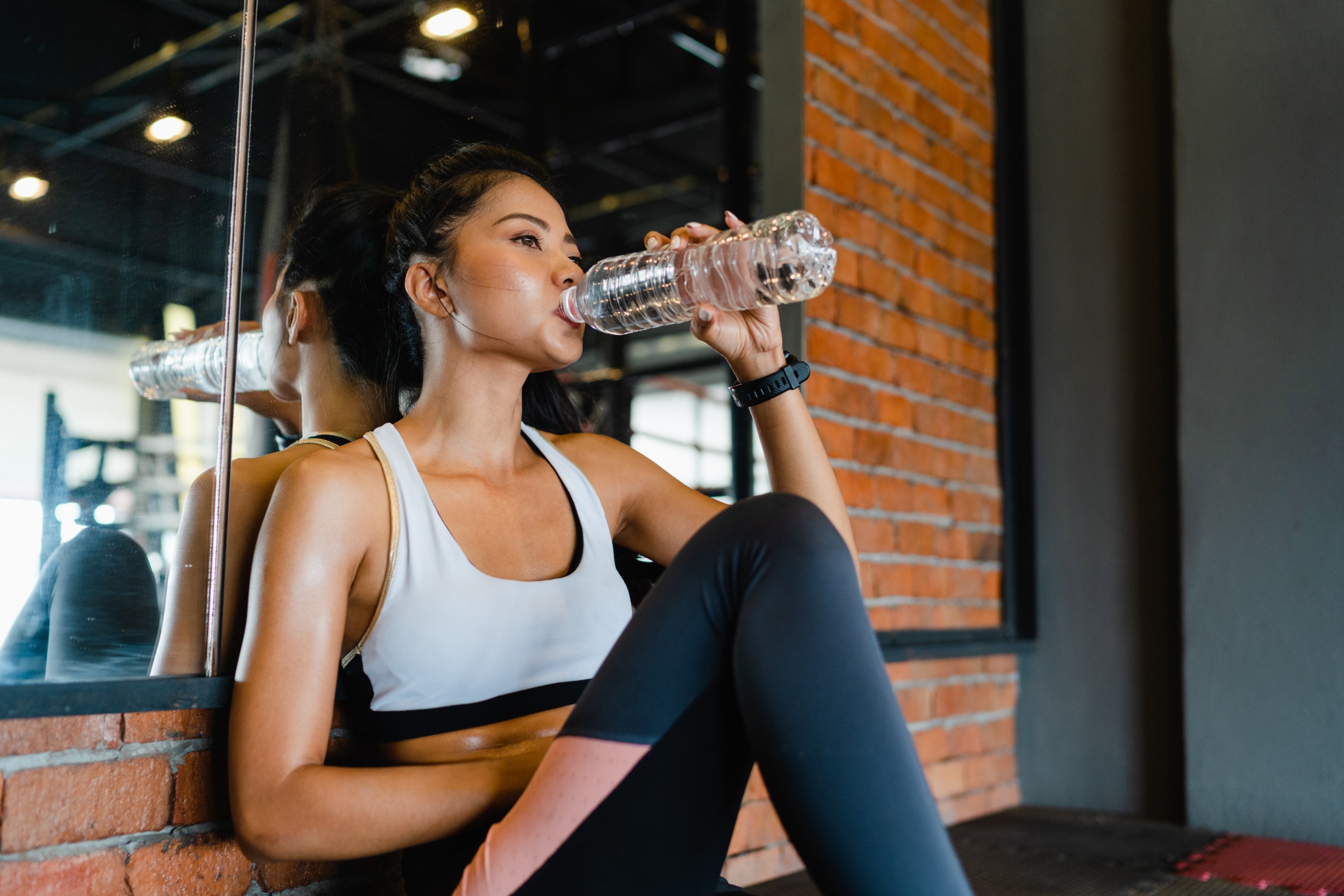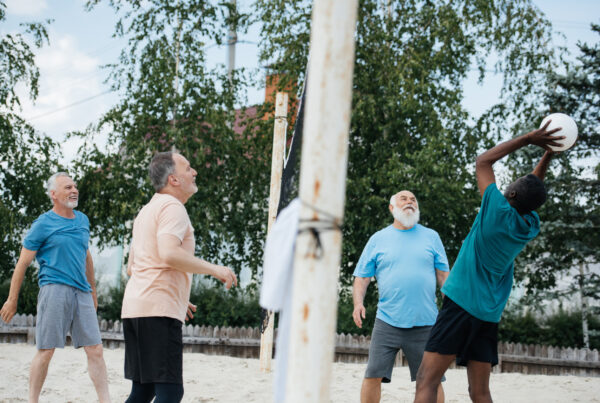”Question: Why do I need to consider food and exercise for better health outcomes?
Reading time: 6 Minutes
MWi Hack:
- Optimize your fitness journey by recognizing the synergy between nutrition and physical activity—fueling your body with the right balance of macro and micronutrients is key to enhancing performance and recovery, ensuring a holistic approach to wellness.
MWi Summary:
- Nutrition and physical activity are interconnected, with proper nutrition playing a crucial role in maximizing athletic performance and supporting muscle recovery.
- Balancing carbohydrates, proteins, and fats is essential for fueling the body effectively during exercise and promoting optimal recovery afterward.
- Incorporating nutrient-dense foods like leafy greens, berries, eggs, sweet potatoes, and turmeric into your diet can provide antioxidants, vitamins, and minerals beneficial for athletic performance and overall health.
- Adequate hydration is vital for maintaining optimal performance and preventing dehydration during exercise, with electrolyte replacement also being important for sustained energy levels.
Whether you are a competitive athlete, play a recreational sport, or practice yoga, there is no doubt that physical activity has many health benefits. When it comes to maximizing your workouts or improving athletic performance, nutrition and physical activity go hand in hand.
What we eat before and after exercise, as well as on a regular basis, can make a large difference in how we feel and how we perform during activity. The right balance of macro and micronutrients may vary depending on your fitness level and the type of activity you perform. Still, it is important to get enough nutrition to maintain your health and optimize your performance.
Nutrients and Your Athletic Performance
Proper nutrition is imperative to maximize athletic performance. Without enough carbohydrates, proteins, and fats, athletes may feel sluggish and fatigued during a workout or ravenously hungry. Athletes may also need to focus on specific vitamins and minerals for fitness performance, such as iron, vitamin D, and zinc.
Nutrition for physical activity is highly individualized. It is often helpful to consult with a sports dietitian to review your individual needs and make specific recommendations for your body and activity level.
Evidence Shows Proper Nutrition Supports Activity
While we frequently think about the health benefits of nutrition and physical activity separately, there is evidence that integrating both nutrition and physical activity produces greater benefits than focusing on one or the other.1
Additionally, research shows that exercise informs food choices, and individuals who exercise may make more nutritious choices.2 Nutrition may also support muscle recovery by reducing inflammation. One study showed that individuals who were more physically active and had higher antioxidant intake had lower levels of systemic inflammation.3
The Importance of Balance and Timing of Macronutrients
Consuming adequate amounts of macronutrients—carbohydrates, protein, and fat—to fuel our bodies is imperative for optimal exercise performance.
- Carbohydrates are our bodies’ preferred source of fuel. They give us the energy we need to go about our day and maximize workouts and athletic performance.
- Protein is important for building muscle as well as the repair and recovery of bones, joints, and ligaments after a workout.
- Fat keeps us full and satisfied, helps cushion our bones and joints, and increases the absorption of fat-soluble vitamins A, E, D, and K.4
When it comes to fueling for exercise, finding the right balance and optimal timing of macronutrients for your body is key. Physical performance and recovery after exercise are enhanced by consuming carbohydrates and protein.
One study looked at the effects of protein and carbohydrates on skeletal muscle regeneration given to athletes by shake or meal. 35 individuals ran 10 kilometers (6.2 miles) and then consumed either a protein/carbohydrate shake, a meal of white bread and sour milk cheese, or nothing. The study indicated that consumption of carbohydrates and protein by shake or food was preferable, as it reduced exercise-induced skeletal muscle damage and had anti-inflammatory effects.
What To Eat For Optimal Performance
A “superfood” is a term frequently used by the food industry to market a specific food as offering maximum nutritional benefits or being exceptionally nutrient-dense.
While some foods are more nutritious than others and may positively affect health, it is essential to note that no single food is responsible for optimal health or disease prevention.
If you are looking to increase the nutrient density of your diet, including some of the following nutritious foods is an excellent place to start. These foods, including leafy greens, berries, eggs, sweet potato, and turmeric, contain antioxidants, complex carbohydrates, and protein and are beneficial for athletic performance.
Dark Leafy Greens
Dark green leafy vegetables are packed with important nutrients such as folate, zinc, calcium, magnesium, iron, vitamin C, and fiber. Eating leafy greens, such as spinach, kale, collard greens, and swiss chard, is shown to increase muscle function in men and women engaging in physical activity.6
Additionally, the nitrates in leafy greens convert to nitric oxide, opening blood vessels and improving blood flow during exercise.7 You can incorporate dark leafy green vegetables into your diet by making kale salads, sautéing spinach into eggs for breakfast, or blending them into a smoothie.
Berries
Berries are known for their powerful antioxidant properties, making them an important part of an athlete’s diet. Exercise causes oxidative stress, which results in the production of free radicals, muscle damage, and fatigue. Including antioxidants in the diet may help enhance athletic performance by decreasing muscle damage and inflammation.8
Top a yogurt parfait with blueberries, blend strawberries into a smoothie, or add raspberries or blackberries into a salad to get an antioxidant punch.
Eggs
Eggs, including the yolks, are rich in B vitamins, choline, iron, antioxidants, and high-quality protein, which is important for muscle recovery and repair. The protein in eggs is considered to have high bioavailability, meaning it is easily digested and efficiently metabolized by the body.
Additionally, eggs contain fatty acids that are important for heart health as well as vitamins and minerals that help with cell growth and tissue repair.9 Eggs are an easy and quick breakfast, scrambled with veggies or hardboiled for grab and go.
Sweet Potato
Sweet potatoes are a root vegetable packed with potassium, fiber, and vitamins A and C. They are an excellent source of complex carbohydrates needed by athletes for fuel. Getting enough potassium also reduces fatigue, muscle cramps, and the feeling of weakness.10
Sweet potatoes can be incorporated into your diet in several ways. Top a baked sweet potato with Greek yogurt and almond butter for breakfast, roast wedges, add them to a salad, or bake until crispy and enjoy as sweet potato fries with a burger.
Turmeric
Turmeric is a bright yellow spice, originally from India, used for cooking and medicinal benefits. It is best known for its antioxidant and anti-inflammatory effect and may play a role in preventing chronic diseases such as cancer, heart disease, and diabetes.
Turmeric is also a more recent focus of post-exercise recovery research. Evidence suggests that individuals who use turmeric after a workout experience reduced muscle pain and tenderness, reduced muscle damage, and decreased inflammatory markers.
Incorporate turmeric into your routine by sprinkling the spice on roasted vegetables, adding it to a curry, or making golden milk. Turmeric is also available in supplement form.
Hydration Makes a Difference
Adequate hydration is imperative to overall health and exercise performance. We all lose water through normal bodily functions, such as breathing, digestion, and sweating. Athletes need to replace additional water and electrolytes lost through exertion during exercise.
Dehydration can lead to cardiovascular strain, altered metabolic function, and increased body temperature. Individuals also lose sodium, potassium, calcium, and magnesium with sweat. To avoid dehydration, it is important to ensure you are drinking before, during, and after exercise to maintain adequate hydration levels.13
Sustainable Nutrition Habits
Whether you’re training to run one mile, your first 5K, or a marathon, start with small and realistic nutrition and hydration goals. Trying to overhaul your entire diet at one time can feel overwhelming, and it is likely unsustainable. Small goals are more sustainable and, therefore, more beneficial in the long term.
If you feel your hydration is lacking, try investing in a fun water bottle. Flavor your water with fresh fruit or liquid beverage enhancers if you like your water to have a taste. Try adding one extra glass of water to your day.
Looking to include more antioxidants in your diet? Try adding one fruit and one vegetable to your meals each day. Pick one new nutrient-dense food and add it to your weekly meal plan. Add one each week, and soon enough, you will have greatly increased the variety of vitamins and minerals in your diet.






